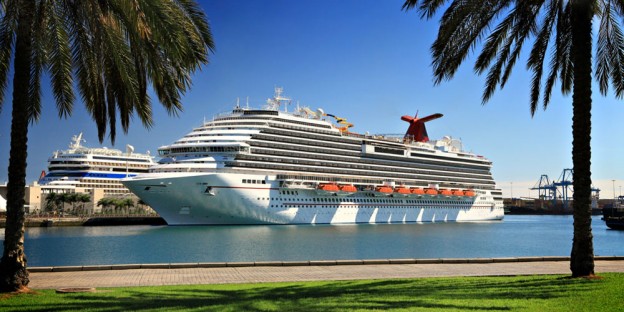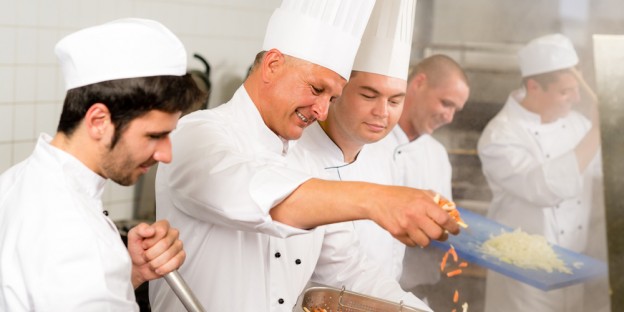Cruise line jobs offer extensive potential for growth through skills and experience. It is certainly not easy cooking for thousands of people every day for months on end. While this may seem stressful, it is exactly this that helps you perfect your skills to a point where much of the basics can literally be done with your eyes closed.
At every level, there is something to learn. When you first join a cruise line kitchen on the bottom rung, you learn tips and tricks of getting things done much quicker. The all-important knife skills are honed and you will learn to be a force to reckon with in the kitchen. These may seem small at first, but they all add up as you climb the ladder or if you need to switch to a land-based job later.
Many cruise lines are taking on celebrity chefs from around the world to run their restaurants. At mid-level positions, it presents the chance of a lifetime to work with and learn from chefs who are renowned everywhere. Positions at similar land-based restaurants are very hard to come by.
When working on a cruise line, you learn to cook on the go. This means understanding stocks and storage, menus that are pre-set weeks earlier, and maintaining quality all the time. Because cruise ship kitchens only touch port once every few days, chefs must ensure that stocks last the while. If the kitchen runs out of an ingredient, there is no way of ‘popping to the store’ to replenish stocks.
This also helps you learn how to think on your feet – how to salvage a situation and still ensure that the customer is happy with the quality and has no idea what happens behind the scenes. These are all skills that will set you apart from your land-based colleagues and help you grow in your career.
Working with large quantities and maintaining the standard of quality expected by the company also adds weight to one’s resume. Working in cruise ship jobs brings you in touch with a variety of nationalities and cultures, and helps you learn techniques of each in a way that land-based restaurants can rarely, if ever, do.
The key to ensuring you make the most of your cruise ship kitchen job is to work as hard as you can and take the opportunity to learn from as many people as possible. The skills and techniques you learn on board will stand you in good stead for a lifetime.



